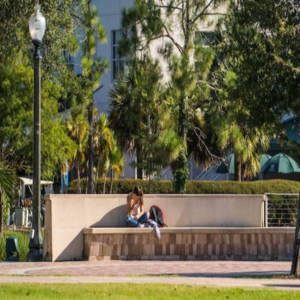The University Ombuds Offers all members of the campus community a central, safe, and easy place to gain support and problem-solving resources.
All members of the campus community can contact the University Ombuds about any issue
related to the University as an informal resource. Visitors may talk to the ombuds
in confidence about any work-related concern. Campus leaders may also consult with
the ombuds in confidence on managing workplace conflict. The Ombuds listen and explores
possible courses of action with you. You decide how to move forward — if at all. Our
services are free and voluntary as well as confidential and off the record. If another
office is better suited to address or resolve the concern, we will advise you of those
options. Our fundamental principals and core values include: independence, impartiality, informality, and confidentiality.
*Limits to email confidentiality: Florida Gulf Coast University (FGCU) Office of the Ombuds practices in accordance
with the International Ombuds Association’s (IOA) Code of Ethics and Standards of
Practice. While the Office of the Ombuds makes every effort to maintain information
confidentially to the fullest extent of the law, e-mails to or from our office may
be considered public records subject to disclosure under Florida Public Records law.
*The Office of the Ombuds is not an office of notice and is not an office of record. Communication to the Office will not constitute formal notice to the University of any alleged violations of law, regulations, or policies. Although visitors to the Office may make such allegations, the Office is not a “campus security authority” as defined by the Clery Act or an “official ......who has authority to institute corrective measures” under Title IX, nor is it required to report these allegations to the University.
Ombuds Office Charter
Information for Students
Information for Staff
Information for Faculty
Meeting Request
Self Help Resources
Complaint Process
Grant-in-Aid
Get Immediate Support: Emergency - Call 911 | Campus Police - 239-590-1900 | EARS Line - 239-745-EARS
Additional Supports for your Concerns: OIEC | Human Resources| Student Care
-
Ombuds Communications
Toggle More Info -
Mission
Toggle More Info -
What is an Ombuds?
Toggle More Info -
What does an Ombuds do?
Toggle More Info -
Guiding Principles
Toggle More Info -
Why should you visit?
Toggle More Info -
Not sure where to go
Toggle More Info -
What will happen after a meeting?
Toggle More Info -
Meet the Ombuds
Toggle More Info -
FAQ's & Campus Resources
Toggle More Info -
Annual Report
Toggle More Info -
Contact Us
Toggle More Info










